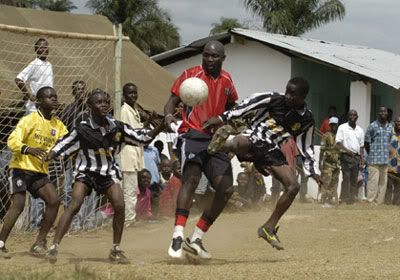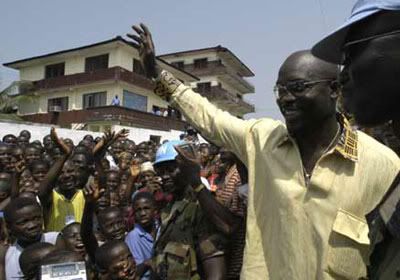My own Anzac Day experience
It occurred to me that many of you who read my blog aren't from either New Zealand or Australia, so all this Anzac day palaver might be completely new to you. For your benefit, here is a brief potted history of Anzac day, lifted from the programme at the service I went to.
The History of Anzac Day
The Anzac tradition - the ideals of courage, endurance and mateship - was established on 25 April 1915 when the Australian and New Zealand Army Corps landed on the Gallipoli Peninsula.
It was the start of a campaign that lasted eight months and resulted in over 130,000 casualties from both sides. Of these, the 11,410 Australians and New Zealanders represented a huge loss for he two fledging nations.
The men who served on the Gallipoli Peninsula created a legend, adding the word Anzac to the Australian and New Zealand vocabularies and creating the notion of the Anzac spirit.
In 1916, the first anniversary of the landing was observed in Australia, New Zealand and England and by troops in Egypt. That year, 25 April was officially named Anzac Day by the Acting Prime Minister of Australia, George Pearce.
That little piece, though it is nice and succinct, omits a few key details:
1) The entire Gallipoli campaign was an unmitigated disaster for the Allies. It completely failed to achieve any of its strategic aims whatsoever.
2) The campaign itself was the hare-brained idea of none other than Winston Churchill. It was intended that by taking the Gallipoli peninsula, Allied Troops would control the Dardanelles, thus freeing up the way for an advance on Constantinople (now Istanbul) and knocking Turkey out of the war. None of that happened.
3) The generals, admirals and commanders in charge of the campaign hopelessly underestimated their opponent, and had no clear idea of how they should best go about achieving their strategic aims. They were, essentially, blundering about cluelessly in the dark, sacrificing young men's lives by the thousand.
4) The Anzac casualties were vastly outnumbered by the French, British and Turkish casualties (in that order), though of course on a per capita of population basis the New Zealanders and Australians were the hardest hit.
5) The Turkish troops were led in this campaign by Mustafa Kemal (who later renamed himself Kemal Ataturk), who made a name for himself as a brilliant leader and strategist and went on to found modern Turkey.
6) Perhaps most importantly, the campaign bred amonst the Anzac troops a strong and healthy respect and admiration for the bravery, stubbornness, and sheer willpower of the Turks against whom they were fighting, and vice versa.
I only mention that last point because it will help to understand certain aspects of the service I attended, discussed below. If you're interested, you can find more on the history of the Gallipoli campaign here, and here. In book form, I can also heartily recommend L.A. Carlyon's Gallipoli
Anyway, enough background.
So, on a cool and windy 25th April, Ms Bear and I headed off to the Anzac Day Ceremony at the Berlin 1939-45 War Cemetery in Berlin Charlottenburg. It was organised jointly (hear that John Howard?) by the Australian and New Zealand Embassies. We arrived about half an hour early, which I was pleased about, because it gave us the chance to wander around the beautifully presented and very serene cemetery almost completely alone. As the name implies, those buried in this cemetary were not Gallipoli casualties, but rather World War II victims, from all of the Allied Nations. I've noted this in War cemeteries before, but it never fails to shock me: almost all of the soldiers buried there never made it to my age. Accordingly, by the time the ceremony itself started, I was already feeling pretty moved and choked up.
There were perhaps 70 or 80 people in attendance. They included the Australian, New Zealand and British Ambassadors, the Turksih Charge d'Affaires, Australian, New Zealand and Turkish Defence Force representatives and sundry invited guests such as ourselves. The service itself was brief, only about 25 minutes in total. But it was very moving. This was the first Anzac Service I'd been to where Turkish representatives were in attendance, and I must say I thought it was a very nice touch. It greatly added to the strong sense that I always have on Anzac Day that it is by no means a celebration of war, but rather a celebration of peace on a day where we remind ourselves of the futility and senselessness of war. (Why else would we New Zealanders and Australians choose to remember our war dead on a day that symbolises perhaps our most resounding military defeat of all time?)
After an opening prayer from an Anglican minister and a reading and prayer in Turkish from one of the Turkish representatives, the Australian ambassador and New Zealand ambassadors both made moving speeches about the meaning of Anzac day. They were two of the best Anzac Day speeches I've heard, and I wish I had copies of them to share with you.
But then came what, for me, was the most moving part of the ceremony. Mr Adnan Basaga, the Turkish Charge d'Affaires read this piece:
as a thoroughly gripping and informative read.
Those heroes that shed their blood and lost their lives...
You are now lying in the soil of a friendly country.
Therefore rest in peace.
There is no difference between the Johnnies
And the Mehmets to us where they lie side by side
Here in this country of ours ...
You, the Mothers,
Who sent their sons from far away countries
Wipe away your tears;
Your sons are now lying in our bosom
And are in peace.
After having lost their lives on this land they
Have become our sons as well.
Kemal Atatürk, 1934
That, to me, just about says it all, much more eloquently and movingly than I could have.
In addition, there were of course a couple of hymns, a reading from Laurence Binyon's Ode for the Fallen, a prayer of remembrance, and the Last Post and Reveille played by a lone bugler. All very moving stuff. Having missed out on observing a couple of Anzac Days while I was living in the UK, I was very pleased to have been there. And the drinks and nibbles at the Australian Ambassador's residence afterwards were nice too. In case you're wondering, I did manage to bite my tongue about Teflon John's no-show in Gallipoli!
For any Kiwis or Australians living in Germany, I would urge you to get yourselves on your embassy's list of residents. That way you'll get an invite to this ceremony next year too. It's well worth the effort.












